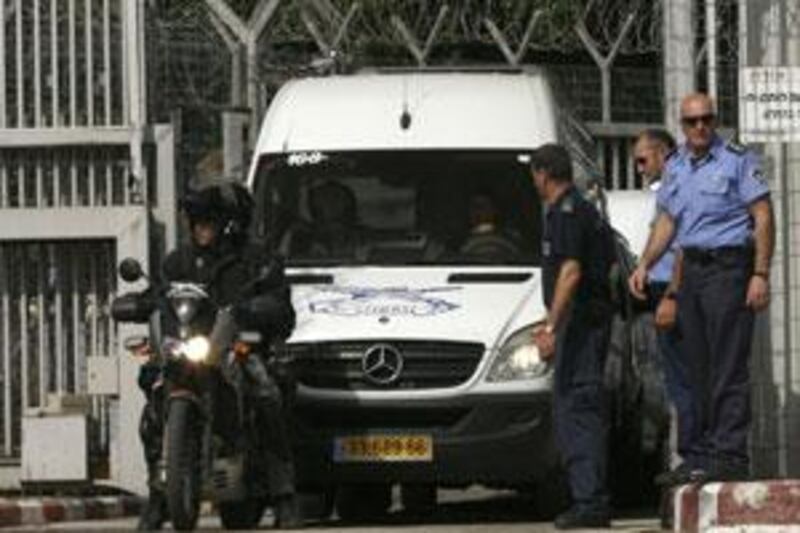JERUSALEM // Israeli prison vans began moving 19 Palestinian women toward border crossings with the West Bank and Gaza Strip today, where they will be freed if Hamas militants release a promised videotape offering a first glimpse of a long-held Israeli soldier. A 20th woman will be released to Gaza on Sunday as part of the exchange, Israel's prisons service said. The deal is seen as a first, tentative step toward trading Sgt Gilad Schalit, 23, for hundreds of Palestinians held in Israeli jails. It could also herald an end to a crippling, Israel-led blockade of Gaza, which has prevented the territory from rebuilding after Israel's winter war there. Israel imposed the blockade after Hamas, seized power in Gaza two years ago. It has refused to lift the embargo until the serviceman is freed. Sgt Schalit was captured in June 2006 by Hamas-linked militants in Gaza who tunnelled under the border into Israel, killed two other soldiers and dragged him bleeding into Palestinian territory. So far, the only signs of life from him have been several letters and an audio recording. Only one of the letters - written three months after his capture - has been released, just last month. Hamas has not allowed the Red Cross to visit the soldier. Israel and Hamas shun each other, and German and Egyptian mediators have been acting as go-betweens in swap talks. A German mediator is to give the Schalit videotape around midday to Israel's lead negotiator, who must verify it meets three criteria before the Palestinian women are released, an Israeli government official said: It must be provably recent, Sgt Schalit must be talking clearly into the camera, and the film must be at least a minute long. Copies of the tape will then be made for the Israeli prime minister Benjamin Netanyahu and the soldier's family, among others, the official said. It will not be shown to the public if the family doesn't want it released, and even if they agree, it wasn't clear whether the footage would be aired on Friday, the official said. He spoke on condition of anonymity because the deal has not yet gone through. Hamas has said it must receive permission from the German mediator before authorising the release of copies of the videotape to the media. Israel has said Friday's deal was suggested by mediators as a "confidence-building measure". But Israeli officials have predicted that negotiations for a final deal would be long and difficult. The Palestinians want Israel to trade up to 1,000 Palestinian prisoners for Mr Schalit, including many convicted of deadly attacks on Israelis. Talks have snagged over the specific prisoners the Palestinians want freed and where they are to go after their release. Still, both Hamas and Israel appear eager to wrap up a deal. Mr Schalit's return would end a painful chapter in Israel, where military service is compulsory and his long captivity has touched a raw nerve. Many Israelis have rallied behind the soldier and his family, holding protests calling for his release and decorating their cars with bumper stickers bearing his name. As speculation about a possible prisoner swap grows, however, arguments against his release have grown louder, because of the high price Israel would have to pay. Hamas' profile, meanwhile, would be raised in Palestinian territories by the loosening of the blockade and the release of hundreds of Palestinian prisoners. Prisoners enjoy an eminent status in Palestinian society because so many families have members in Israeli jails. A large-scale release would be a coup for Hamas as it jockeys for power against the moderate government led by the Palestinian president Mahmoud Abbas in the West Bank.
*AP





